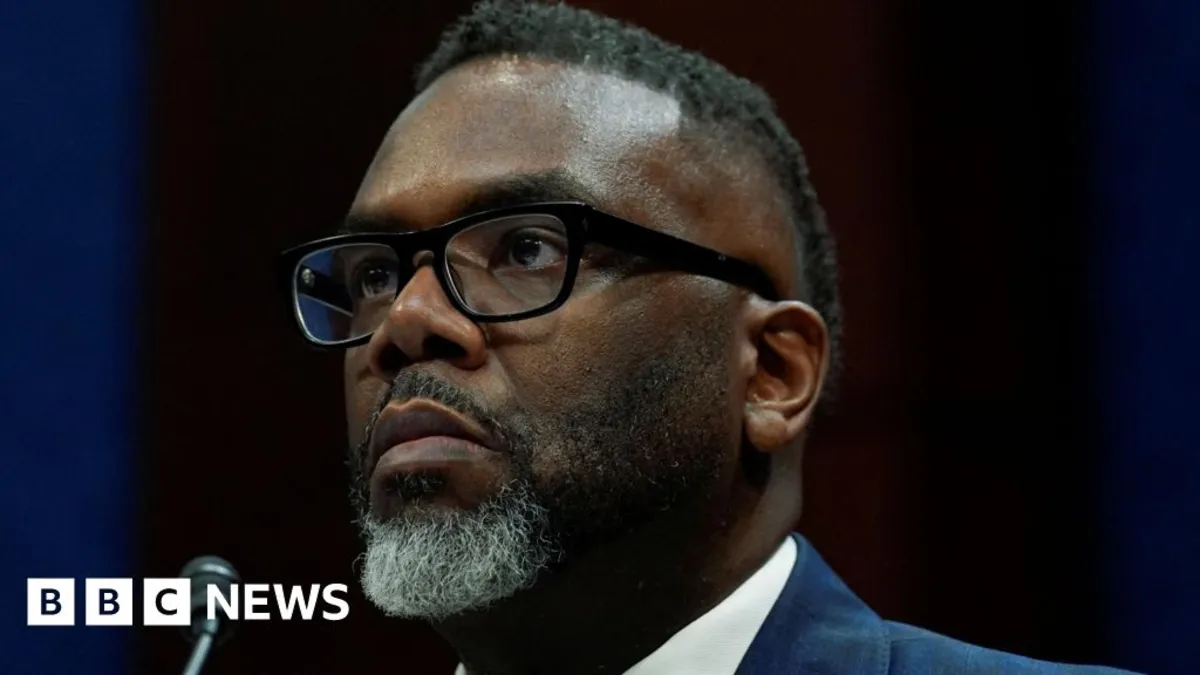
The mayor of Chicago, Brandon Johnson, has taken decisive action by signing an order that outlines how the city plans to resist a potential immigration crackdown threatened by the Trump administration. In a statement, Johnson, a Democrat, asserted, “We do not need nor want an unconstitutional and illegal military occupation of our city.” This order is a response to the growing tensions regarding immigration enforcement and public safety in Chicago.
The newly signed order specifically instructs city agencies on how to react to possible immigration enforcement actions. With approximately 2,000 troops already deployed to Washington, D.C., Trump has hinted at extending this military presence to Chicago, claiming the city is plagued by crime. In addition, there are reports of plans for a surge of federal immigration agents to be sent into the city, raising concerns among residents and local officials.
This order marks the latest chapter in an escalating feud between the White House and Illinois state and local officials regarding issues of violent crime and immigration. The order explicitly demands that Trump and federal agents refrain from deploying the U.S. Armed Forces within Chicago. Furthermore, it reiterates several existing city policies aimed at protecting residents, including mandates for law enforcement officers to wear body cameras and display identifying information, along with a prohibition against wearing masks, which has been a point of contention with Immigration and Customs Enforcement (ICE) officers in other cities.
Mayor Johnson emphasized that Chicago officials are committed to helping residents understand their rights when encountering immigration enforcement. He also assured the public that local officers will not participate in joint patrols with federal agents, a move that reflects the city's stance on maintaining community trust and safety.
Local officials estimate that over one in five residents in Chicago is an immigrant, with more than half originating from Latin American countries. Although the exact number of undocumented individuals living in the city remains unclear, the implications of immigration policy and enforcement are significant for a diverse community like Chicago.
Former President Trump, a Republican, has labeled Chicago as a "killing field," asserting that the crime rate constitutes an emergency. His threats to deploy the National Guard have been described by Illinois Governor JB Pritzker, a Democrat, as an abuse of power. Pritzker criticized Trump for attempting to manufacture a crisis and politicizing the military, stating, "Donald Trump is attempting to distract from the pain he is causing working families."
In response to the order, White House spokesperson Abigail Jackson characterized Johnson's actions as a publicity stunt. She stated, “If these Democrats focused on fixing crime in their own cities instead of doing publicity stunts to criticize the President, their communities would be much safer.” This remark highlights the ongoing contentious relationship between local leaders and federal authorities, especially regarding issues of crime and immigration.
As Chicago navigates this complex landscape, the mayor's order serves as a critical measure to protect the rights of its residents and assert the city's autonomy in the face of potential federal overreach.